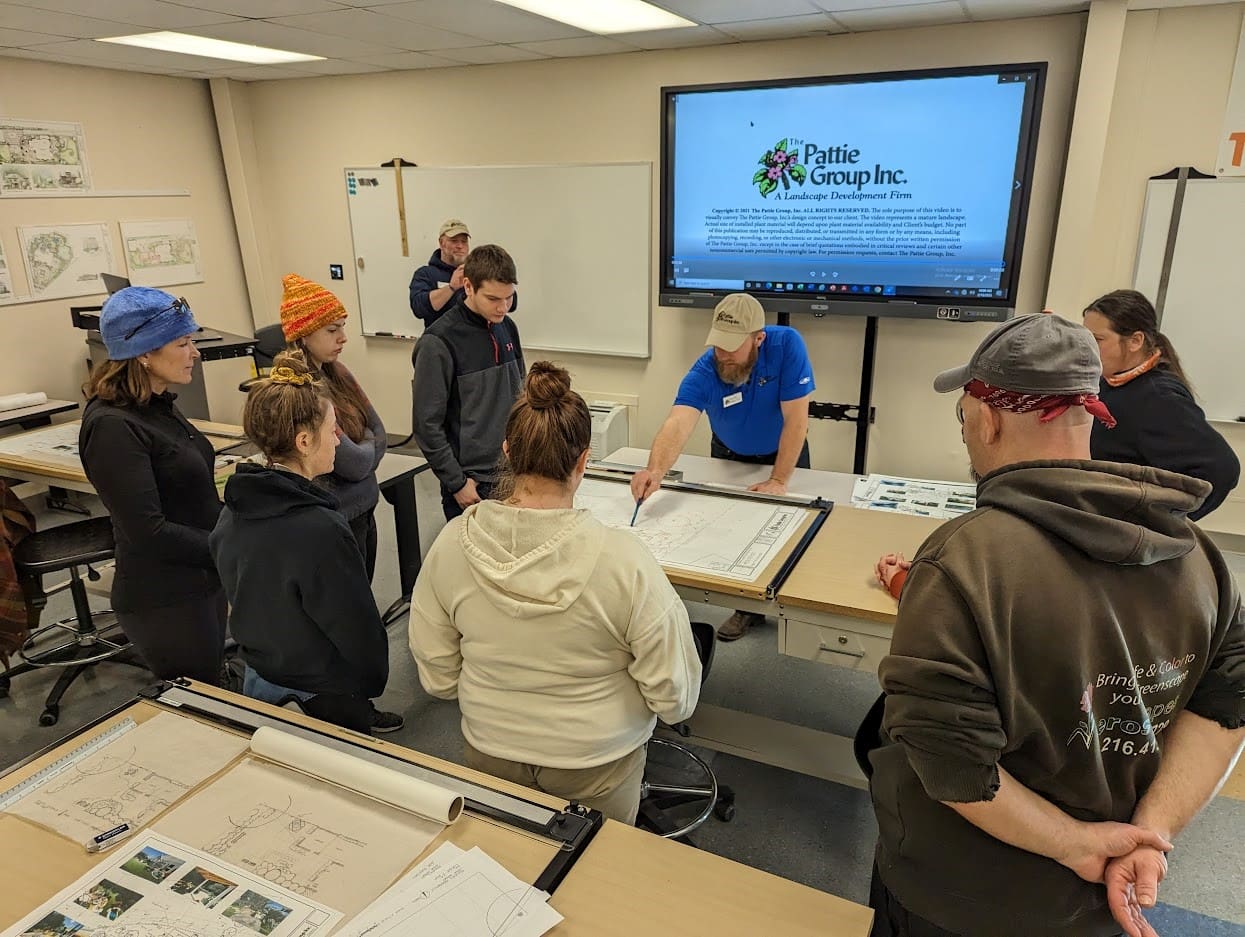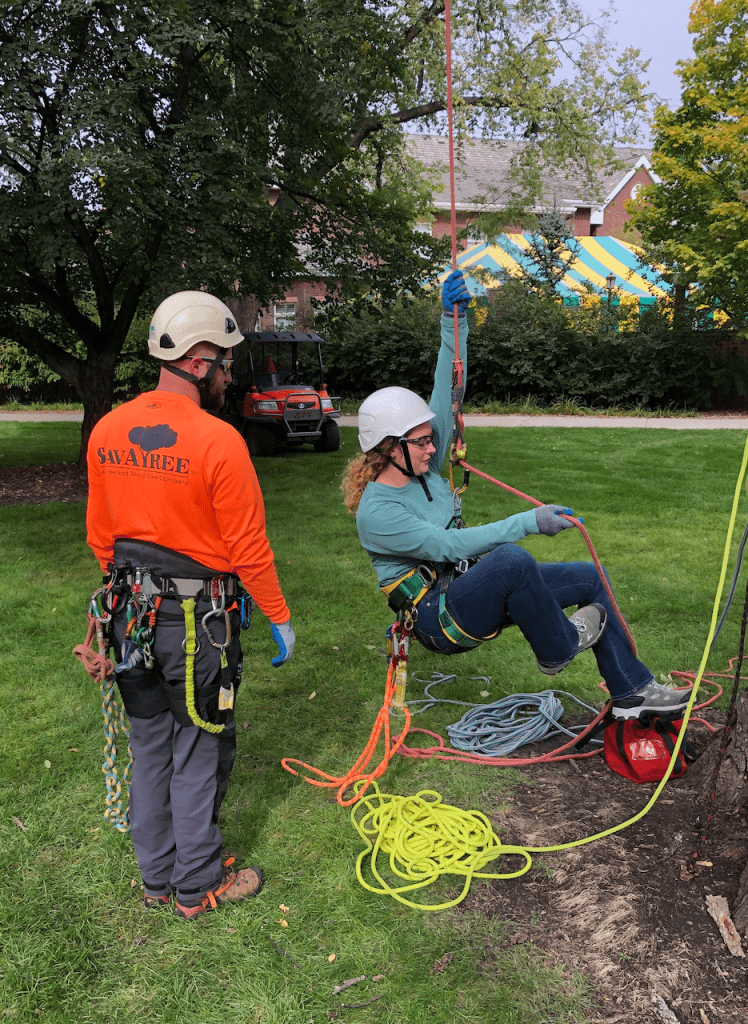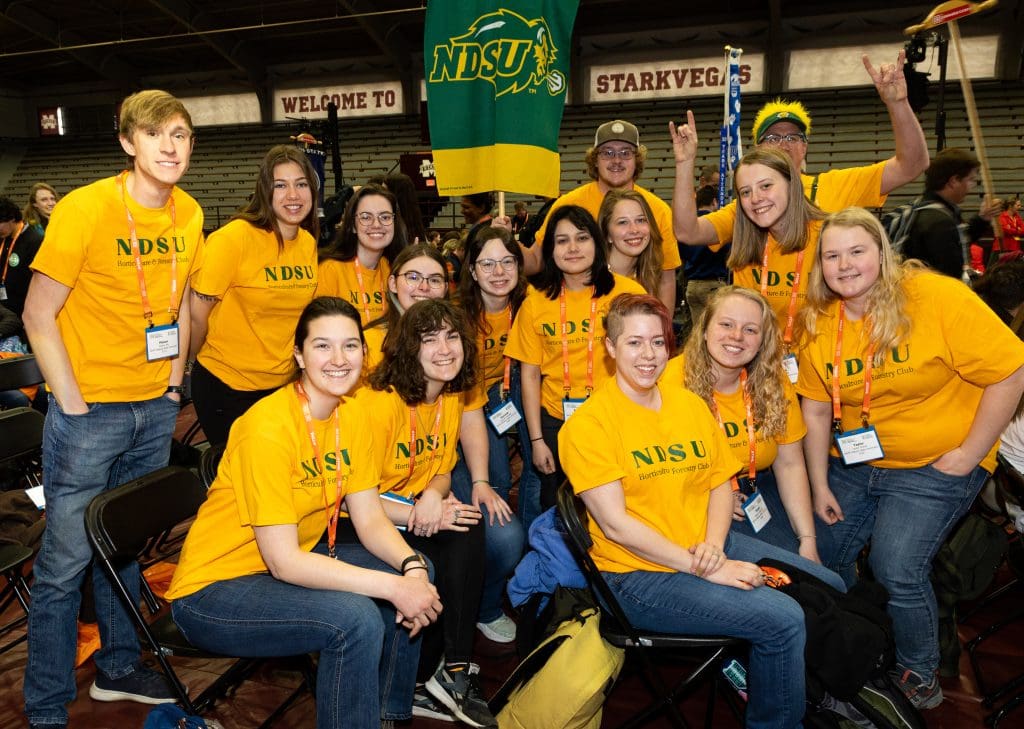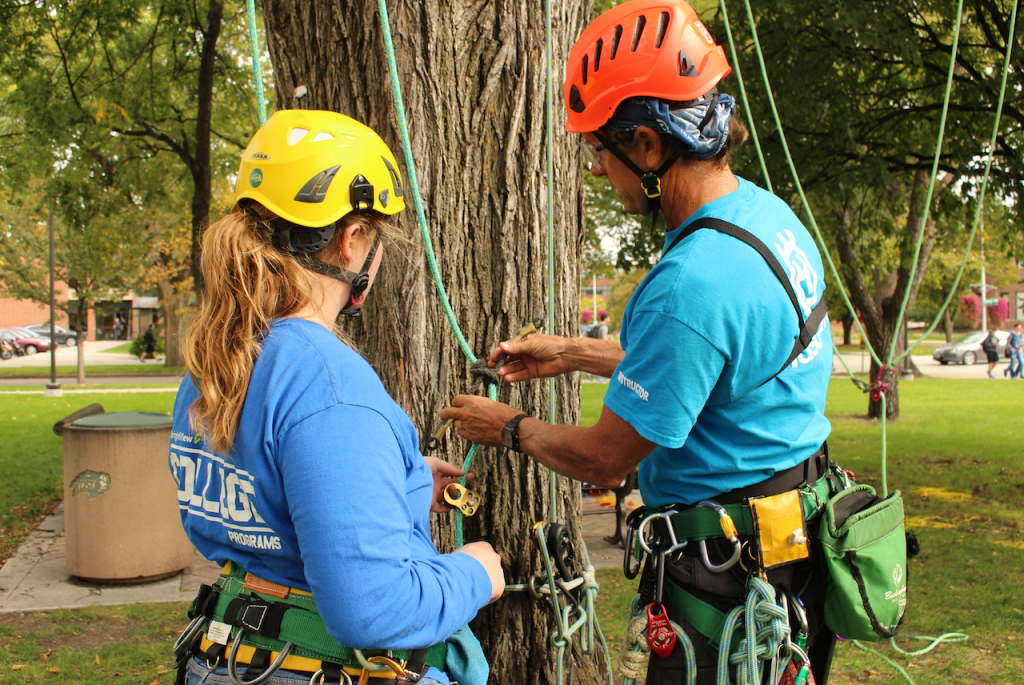
Successful lawn and landscape companies will often tell you to always be recruiting if you want to alleviate your staffing problems. One recruiting avenue is building strong connections with your local colleges and universities with industry-related programs.
Jim Funai, Ph.D., plant science and landscape technology professor at Cuyahoga Community College, based in Highland Hills, Ohio, says he has numerous connections with local landscape companies and it is paramount for him to be engaged in the industry.
“It helps that I worked in the industry, but I also attend all of our local meetings with the Ohio Landscape Association as well as recently serving on the board of directors,” Funai says. “I also teach several of their training events so I can stay in front of the members.”
Phil Allen, Ph.D., professor of landscape management at Brigham Young University, based in Provo, Utah, says in their case, they have 120+ students in their major, but they come from all across the country. While they have good relationships with around 10 local companies, he is also connected with 60 to 70 other landscape companies across the nation.
For North Dakota State University, based in Fargo, North Dakota, they don’t have a lot of large companies in the immediate area, but Todd West, Ph.D., professor of horticulture at NDSU, says he’s formed connections with several landscape businesses nearby as well as others in the Twin Cities, Minneapolis and St. Paul regions.
Benefits of Connecting with Schools
Just like anything else of value, creating a connection with your local college or university takes time and effort. West admits some of the smaller landscape companies can find it difficult to get engaged with their busy schedules.
“I think we have some very progressive companies that understand the labor force,” West says. “They understand what’s going on, so they do reach out to us more. But then, on the flip side, I’ll reach out to them because they may or may not really be thinking about us.”

By forming a partnership with schools you are more likely to see students respond to your job openings. Funai says they have two giant job boards on campus as well as a virtual job board for the students. He says if he’s familiar with the business he’ll tell the student on a scale of 1 to 10 if he would work there.
West agrees that he tends to push students towards the businesses he knows and has a relationship with.
“I’ll have students who will come to me and say, ‘Hey, Dr. West, I found this company. I’d like to maybe intern with them. What do you know about them?’” West says. “I’m like, ‘Nothing. I don’t know. You’re kind of on your own on this one.’ That’s why these relationships are so important.”
West adds that more landscape companies are starting to understand the importance of internship programs as more college programs require them. Allen says he will directly forward job openings or internships to specific students if he thinks one is a good fit for that person. Similarly, he will not advise a student to do an internship at a certain branch of a landscape company if there have been negative experiences there.
“If there’s two or three and they come back say, ‘That was total chaos. I really didn’t like it. I didn’t learn a lot. I got yelled at a lot,’” Allen says. “Then you tend to steer them toward companies in the same locations that have a better culture and are more organized and are not chaos. Chaos was COVID. These kids do not like chaos. They like a challenge, but they like to do those challenging things as teams where everybody’s backing each other up and not off on their own.”
Allen stresses the importance of making sure these job announcements and internships are effective and attractive to young people.
“Too often, the company HR people and owners are my generation or in their 40s and they forget what it’s like being a young, uncertain student,” Allen says. “It’s important that the job descriptions resonate with young people.”
He says one of the aspects students care about is not working for you, but with you. Many are looking for a team environment with a strong culture of supporting one another.
“A lot of these kids have been through high school during COVID and it totally disrupted their lives and made life not fun,” Allen says. “They really want and need fun. To me, there’s nothing more fun than landscape contracting, but companies vary in that, so they want to differentiate on that basis.”
Allen also says with the increasing number of women graduating, it is critical to prove to female students they aren’t going to be the only woman on staff.
Another benefit of partnering with colleges and universities is being able to share your real-world knowledge with students as a way of giving back. Allen says he’s had former students come to speak to classrooms and showcase how far they’ve come and what technology they’re utilizing now with their employer.
Fostering Relationships
Getting connected with a local college requires slowing down, reaching out and starting a conversation about how you’re willing to help.
“We’re just all so busy,” West says. “It’s so much easier just to keep doing what you’re doing. If I’ve got a lecture on paver installation and if I have somebody come in, then I have to rearrange my schedule. Sometimes it’s easier just to do what you’ve been doing, but there obviously is a lot of value to having these companies come in.”
West encourages landscape companies to get in contact with both faculty in landscape programs and the college’s administration.

“That’s one thing we’re always trying to show is that our programs are vital,” West says. “Our programs are needed and vibrant as well. That’s what I love about the National Association of Landscape Professionals, where you have the myths under the career aspect, because our admins are kind of blind to our programs being something that students can actually really be successful in.”
Funai agrees that speaking directly to the administration is one of the best ways to partner with universities.
“All faculty in all industries are telling their admin they have a ton of job opportunities, but when the employers start telling them directly they need more students and what kind of training they need, the admin can respond in support of the program,” Funai says. “Constantly remind the admin how important supporting the program is.”
After building rapport with some educators, visiting the classroom and teaching a lesson for the day or demonstrating new technology or piece of equipment can be extremely beneficial to students. Funai says they have a large maintenance company that hosts their contracting class several times a semester and their leaders take the students through a day in the life.

“One thing I like and I do with most of my courses is bring them into the classroom,” West says. “So, as I’m lecturing about a topic, it’s nice for them to be able to do a follow-up or a hands-on demonstration.”
West says partnering could be as simple as conducting Zooms in the classroom to share your real-life experience so students know what to expect when they graduate.
Allen encourages companies to share the business side of the company so students understand how these operations can be profitable. Being in the classroom also provides a chance to get to know the students better and listen to what they’re looking for in an employer.
“If somebody’s in the classroom, they have the ability to say, ‘If you want to talk more about this, here’s my cell phone number. You can contact me. If you want to come shadow me for a day, you can do that,’” Allen adds.
West says they are also open to opportunities outside of the classroom, as their horticulture club does onsite visits with some nearby landscape companies.
Opting to provide financial support is also always welcomed. Funai says without financial support, they would not be able to attend the National Collegiate Landscape Competition, which they won this year.
“Our school could not financially support that and we don’t have a market to fundraise that amount, so the support of our local businesses is vital to our success,” Funai says.

